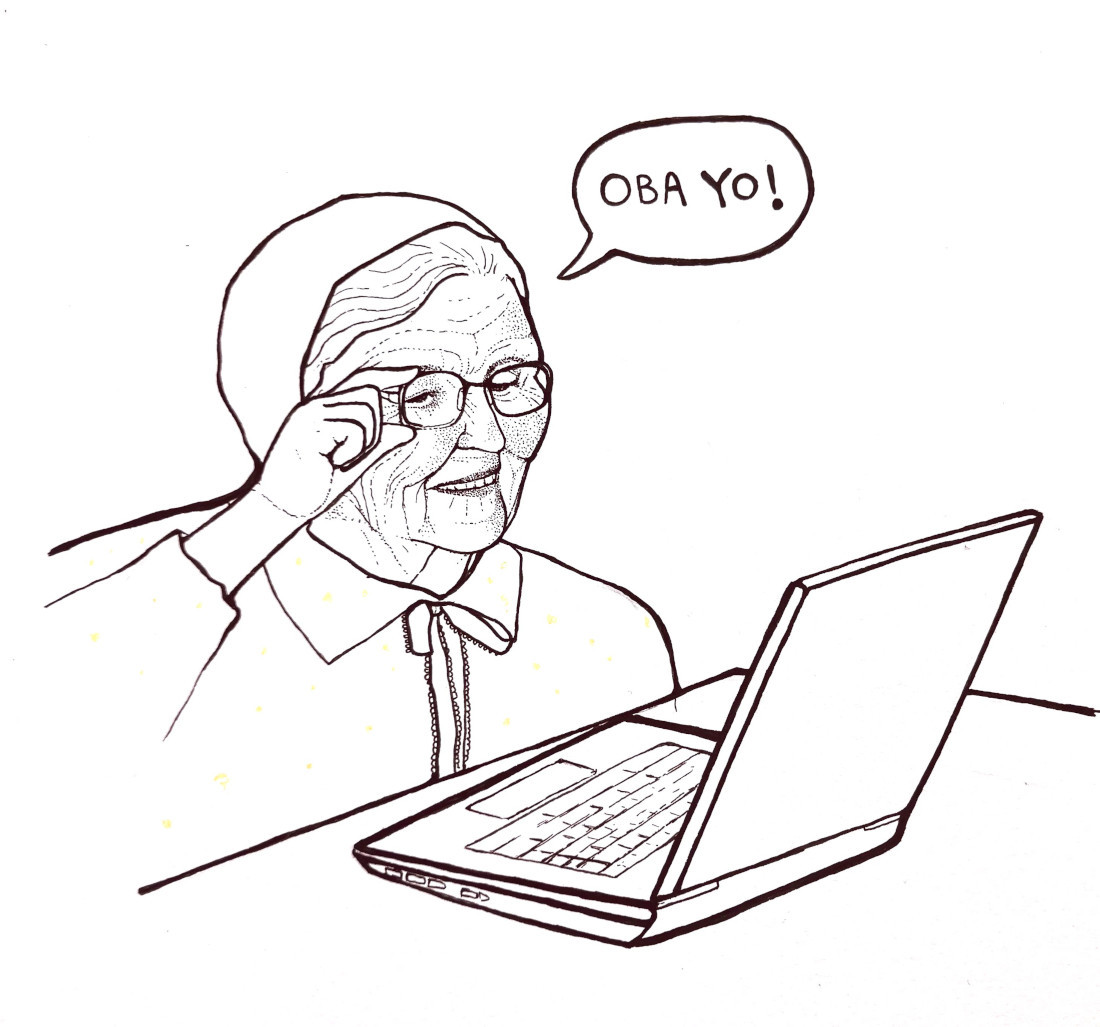Not your opa’s joke
Unpacking Mennonite satire and humour
Illustration by Gabrielle Funk
“Half the time, it’s commenting on real things happening in society, and other times it’s general Mennonite-isms that are being poked fun at,” Unger says.
Winnipeg is home to the largest concentration of urban Mennonites in Canada, with a demographic population of 20,000. If you don’t have Mennonite heritage yourself, you likely know someone who does.
In The Daily Bonnet, recurring semi-fictional characters like Oma Krahn are framed into policy responses to COVID-19, while other blogs satirize culinary traditions and pacifism.
Sometimes, Unger’s posts transcend from the satire world into the real world. This was the case with his parody of Tim Biebs, which were sold as “Tim Wiebes” donuts (echoing a common Mennonite surname) at Valley Bakery in Winkler, Man.
What precisely makes Mennonites funny remains somewhat of a mystery. However, in 2016, comedian Matt Falk endeavored to find out in the short documentary That Mennonite Joke, in which he interviewed a series of notable Mennonites on the subject.
Raised by a Mennonite family in Niverville, Man., Falk’s comedy career has taken him from open mics in small Manitoba towns to standup championships in California.
“I’ve been able to tell Mennonite jokes and stories that have Mennonite characters all over. As long as you set it up properly, people understand,” Falk says.
Falk believes the juxtaposition of the stereotypical Mennonite image with humour is what lands the jokes. “There’s this downward, serious Mennonite figure in your imagination, and then there’s this loudmouth kid who says that he’s a Mennonite on stage, making jokes about it,” Falk says.
Aileen Friesen, an associate professor of Mennonite studies at the University of Winnipeg, believes the image of the “serious” Mennonite adds to their satirical allure.
“That’s a very rich basis for satire in general, and it also means that Mennonites enjoy poking fun at themselves,” Friesen says.
She adds that the “rich nuance” of Plautdietsch, the low-German dialect spoken by Mennonites that’s often featured in Daily Bonnet blog posts, “allows people to describe things in an evocative way that brings you into the story.”
While satirizing eating too much schmaunt fat at dinner or eating too little at faspa establishes cultural connections among Mennonites, Falk sees a more universal aspect to Mennonite humour.
“When you tell a joke about a Mennonite family member from Manitoba, someone in the States or someone across the world can listen to that and go ‘oh yeah, that sounds like my aunt or my grandpa,’” Falk says.
For Unger, one of the most rewarding aspects of running the Daily Bonnet is receiving reader anecdotes in his inbox.
“I’ve had people tell me that the articles have helped them connect them to their grandparents. Someone told me that reading the Daily Bonnet was one of their last memories of their father before he passed,” Unger says. “You realize that your work is more than just making people laugh.”
Visit dailybonnet.com for more Mennonite humour.
Published in Volume 76, Number 16 of The Uniter (February 3, 2022)






